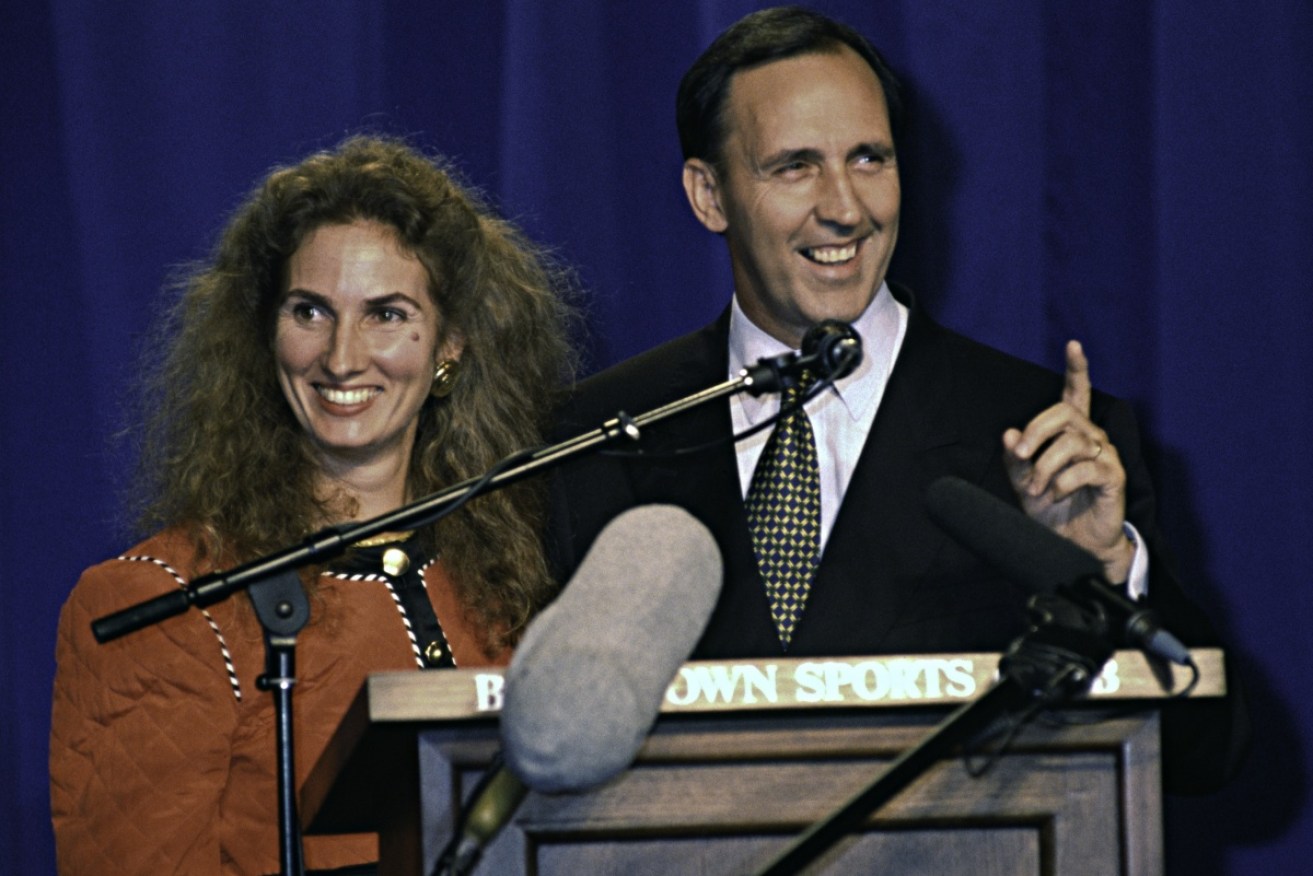Highlights from the Keating papers

Paul Keating won the 1993 election despite a recession hurting him in the polls.
Secret cabinet documents from 1992 and 1993 have revealed the Keating government came close to delaying superannuation and selling off the Royal Mint in a desperate bid to fight the recession.
During these years, the Keating cabinet considered 672 submissions and received 633 memoranda. Some of the most intriguing of these are described below.
Paul Keating was sworn in as prime minister on December 20, 1991 after narrowly defeating Bob Hawke in a party room ballot. He then defeated the Liberal Party in 1993 and remained in office until March, 1996.
The new batch of documents released by the National Archives of Australia cover two of the most crucial years of Mr Keating’s leadership: the fallout from the ‘recession we had to have’, which began in 1991.
A very different ‘One Nation’
In February 1992, Mr Keating unveiled an economic plan called ‘One Nation‘ — a name that would prove far more contentious in later years.

As happens every year, formerly secret cabinet documents of past governments have been made public. Photo: AAP
In it, he promised to restore “jobs and prosperity” and to return the budget to surplus “as soon as possible”. Its many measures included income tax cuts, regulatory relaxations, a one-off family allowance payment, drought relief and a $2.3 billion infrastructure program.
It was a response to the damage the recession was causing to the economy, and was the culmination of months of planning, as many cabinet documents reveal.
“After seven years of growth, Australians are now experiencing hard times. Nearly a million people are out of work. Families are worried about the future,” Mr Keating wrote in the plan.
Things were looking bleak. By January 1992, the jobless rate had risen to 11 per cent (nearly twice as high as today’s 5.6 per cent) and the deficit had blown out to $5.4 billion (nothing compared to today’s more than $30 billion). It would later increase to more than $9 billion.
‘One Nation’ was also a response to Liberal leader John Hewson’s 1991 neoliberal policy manifesto called ‘Fightback!’, a 650-page document which in recent years Mr Hewson has admitted was far too detailed and ambitious.
The centrepiece of Mr Hewson’s plan was a goods and services tax (GST), which proved to be well before its time.
Many believe the GST lost Mr Hewson the 1993 election, not least because of the embarrassing ‘birthday cake’ interview with Mike Willesee, where he gave a convoluted answer to the question whether a cake would cost more or less under the tax.
It would be another seven years before John Howard would impose the GST.
Superannuation almost delayed
A cabinet document also reveals that the Keating government came close to delaying the start of compulsory superannuation because of the 1992 recession.

Compulsory super – where employers put a portion of each pay cheque into a fund nominated by the worker – was legislated by Bob Hawke’s Labor government.
The Hawke government legislated the superannuation guarantee levy (SGL) in 1991 and it came into force in July 1992. But it could have been delayed a further six months until January 1993, the document shows.
“Employers can be expected to support a deferral of the SGL. Some employers will continue to oppose the concept of the SGL. The ACTU may criticise the deferral,” Treasurer John Dawkins wrote in the submission.
Despite support for the delay from Mr Dawkins as well as senior public servants in the Prime Minister’s department and the finance department, it seems the social security department carried the day. It argued any delay would prompt the ACTU to push for higher wages as compensation.
Before 1992, there was no nationwide superannuation system. Some employers and industrial awards provided for it, but not all. Those without retirement savings deducted from their pay cheques were expected to rely on either the age pension or, if they were lucky, a generous defined benefit scheme.
A ‘fluke’ of industrial relations created compulsory super, as explained here.
Change of budget date
A memorandum of a cabinet decision shows that the Keating government originally intended to change the budget date to June, not May.

Treasurer Ralph Willis released the first May budget for the Keating government in 1994. We’ve stuck with the date ever since. Photo: Getty
Between 1901 and 1993, the federal budget was always delivered well after the end of the financial year (June 30), usually in August, September or October.
The Keating cabinet agreed the budget should “henceforth be brought down in the course of the previous financial year”, rather than after it had finished. It then chose May, where it has remained since.
But the cabinet document reveals the original plan was for a slightly later date: the third week of June.
The main advantage of an earlier date, according to analysis by Treasury, was the prospect of getting the enabling legislation through Parliament earlier in the year.
The main disadvantage was that the budget estimates and economic forecasts would have “a greater degree of uncertainty” — a problem that persists today.
Sell the Royal Mint
Another cabinet document from 1993 reveals that the finance department and the Prime Minister’s department wanted to sell off the Royal Mint.

Both the Keating and Abbott governments considered and ultimately rejected selling the Mint. Photo: Getty
Currently, the Reserve Bank prints banknotes, while the Royal Mint produces all coins, both legal tender and collector’s items (from which it turns a tidy profit).
Treasury under Mr Keating opposed the idea, and it never eventuated. The Abbott government also considered and abandoned the idea.
While the Royal Mint was saved from privatisation, a cabinet document from December 1992 reveals the behind-the-scenes discussions that led to the gradual sale of the government’s controlling stake in the Commonwealth Bank, which is now fully private.








